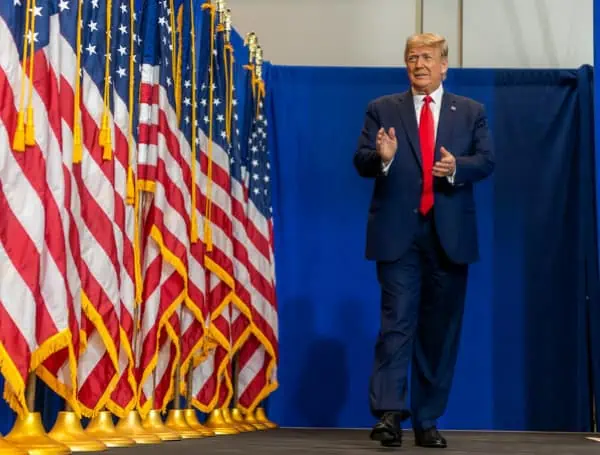The Supreme Court announced that it will hear oral arguments on April 25th regarding whether former President Donald Trump is immune from criminal charges in his federal election interference case.
This highly anticipated legal battle has significant implications for the future of presidential immunity and the accountability of the nation’s leaders.
Background of the Case
The criminal case against Donald Trump, prosecuted by Department of Justice special counsel Jack Smith, alleges that Trump illegally conspired to overturn President Joe Biden’s 2020 victory.
The charges stem from various actions taken by Trump, culminating in his efforts to prevent Congress from counting legitimate electoral votes on January 6, 2021.
Read: Minnesota Rep. Dean Phillips Endorses Biden After Dropping From Primary, Calls Trump ‘Dangerous’
However, Trump argues that as a former president, he is immune from criminal charges for official acts performed while in office.
The Immunity Argument
Trump’s claim of presidential immunity raises significant legal questions. The argument rests on the interpretation of the Constitution’s separation of powers and the scope of executive authority.
According to Trump’s legal team, the immunity doctrine shields a sitting president from prosecution to prevent distractions and ensure the smooth functioning of the executive branch. They contend that this immunity should extend to actions taken during a president’s term, even after leaving office.
On the other hand, prosecutors argue that no individual, including a former president, should be above the law.
Read: Alan Dershowitz Says Voters In Georgia Should Throw Fani Willis ‘Out Of Office’
They assert that the Constitution does not explicitly grant immunity to a president for criminal acts. Furthermore, they contend that allowing immunity for such actions would undermine the principles of justice and accountability that are fundamental to the American legal system.
Lower Court Decisions
Two lower courts have already rejected Trump’s immunity argument. These courts ruled that a former president can face criminal charges for acts committed while in office.
However, the case is currently on hold as the Supreme Court considers whether to weigh in on the immunity claim.
Special counsel Jack Smith has urged the Supreme Court not to further delay the election case by addressing the immunity issue, but the final decision rests with the highest court in the land.
Implications of the Supreme Court Decision
The Supreme Court’s ruling on Trump’s immunity claim will have far-reaching implications for the future of presidential accountability.
If the court upholds the lower courts’ decisions and allows the case to proceed, Trump could potentially face trial shortly before the November presidential election, which may have political consequences.
Read: Democrats Explore Other Ways To Disqualify Trump After SCOTUS Ballot Ban Ruling
On the other hand, if the court grants immunity to the former president, it could set a precedent that shields future presidents from criminal charges for actions taken during their terms.
Potential Outcomes
There are several potential outcomes that the Supreme Court could reach in this case. Let’s explore some of the possibilities:
- Upholding Immunity: If the court rules in favor of Trump’s immunity claim, it would establish a precedent that shields former presidents from criminal charges for official acts performed while in office. This outcome would likely spark debate and calls for legislative action to clarify the extent of presidential immunity.
- Allowing the Case to Proceed: If the court decides that a former president is not immune from criminal charges, it would pave the way for the case against Trump to proceed. This outcome would signal that no individual, regardless of their status, is above the law.
- Narrowing the Scope of Immunity: The court may also choose to narrow the scope of presidential immunity, finding that it does not cover certain actions or offenses. This outcome would provide clarity on the limits of immunity while still acknowledging the importance of executive authority.
- Remanding the Case: The Supreme Court could also remand the case back to the lower courts for further consideration. This outcome would delay a final decision on the immunity claim and prolong the legal battle.
Help support the Tampa Free Press by making any small donation by clicking here.
Android Users, Click To Download The Tampa Free Press App And Never Miss A Story. Follow Us On Facebook and Twitter. Sign up for our free newsletter.
